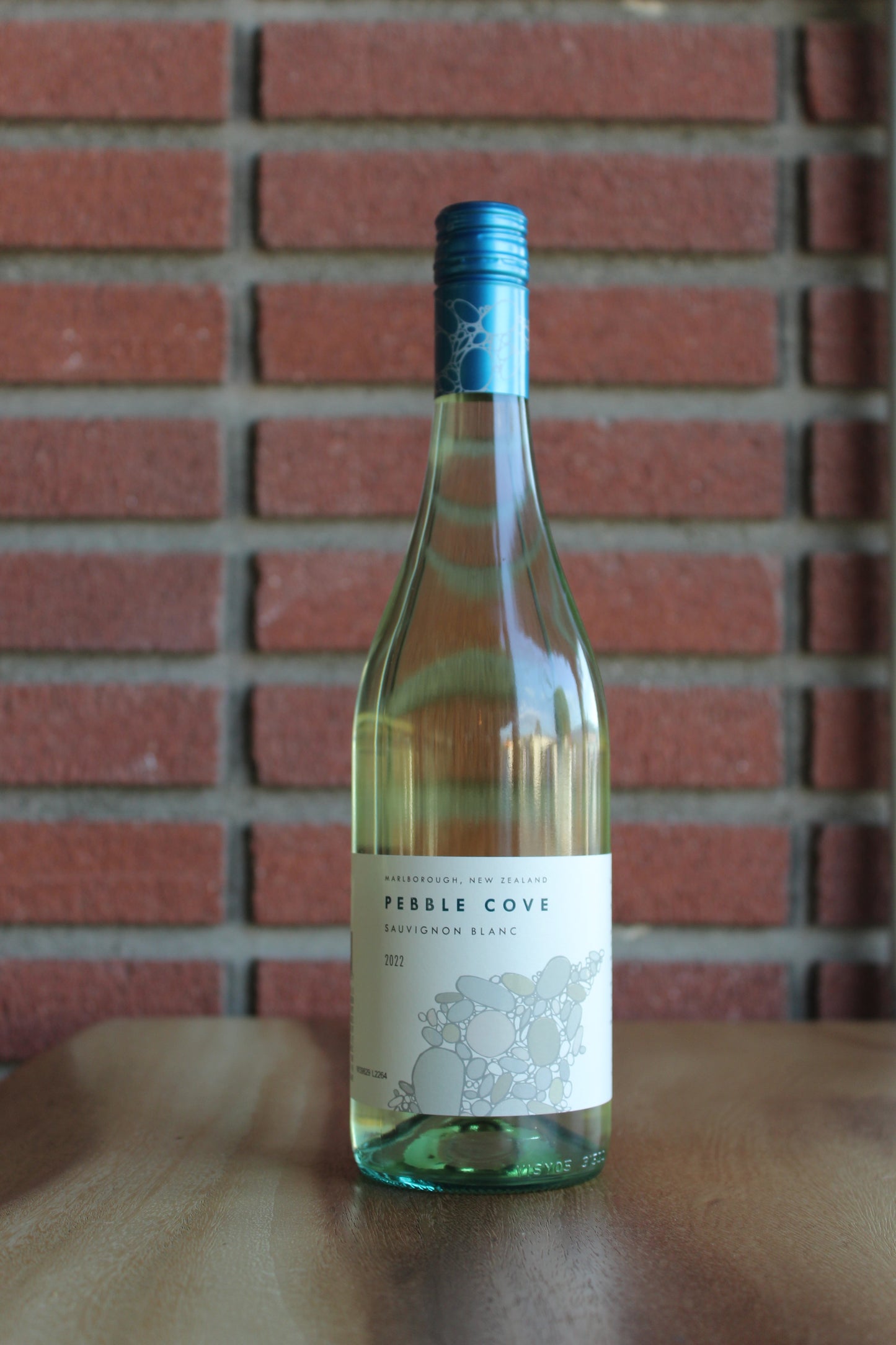Pebble Cove Winery Sauvignon Blanc 2022
Pebble Cove Winery Sauvignon Blanc 2022
Wairau Valley, Marlborough, New Zealand
Couldn't load pickup availability
Share

-
Tasting Notes
The 2022 Pebble Cove Sauvignon Blanc is a tropical, vibrant wine that bursts with fresh, fragrant aromas and lively flavors. On the nose, you’ll find the bright freshness of passion fruit, grapefruit pith, and subtle hints of bell pepper and jalapeno. Layers of gooseberry, white peach, and blackcurrant leaf unfold. The palate is crisp and refreshing, with bright acidity that complements the ripe tropical fruit notes. A touch of flinty minerality on the finish adds depth and elegance. This Sauvignon Blanc is an excellent pairing with barbecued seafood like prawns and mussels, grilled fish, or a flavorful mezze plate.
Pair with: Asian-style seafood dishes. Oysters, scallops, crab, clams, lobster, prawns – any shellfish with zingy flavors or a citrus or garlic marinade or dressing. Thai food generally. Grilled fish especially squid or swordfish. Dishes with herbs and greens. Salmon with dill, lamb with salsa verde. Salads with goat cheese and feta, asparagus, avocado or grilled red peppers, fresh tomato salads or salads with fennel, mango or papaya.
-
Story
Pebble Cove Winery sources Sauvignon Blanc from eleven parcels in the Awatere Valley, each harvested and fermented separately to enhance varietal character. A long, cool four-week fermentation followed, with the parcels blended and stabilized before bottling. The winery is a proud member of Sustainable Winegrowing New Zealand, operating with minimal artificial inputs and human interference. Sustainable practices include grazing sheep in the vineyard to improve soil health, managing water use, and encouraging beneficial insects for natural pest control, all contributing to the vineyard's biodiversity.
-
Somm Notes
Pebble Cove is an accredited member of Sustainable Winegrowing New Zealand and operates in accordance with the organization’s guidelines:
- Minimizing chemical use: Limit synthetic fertilizers, herbicides, and pesticides; use natural alternatives and integrated pest management (IPM).
- Water management: Optimize irrigation and reduce water waste.
- Soil health: Promote soil fertility with composting, cover crops, and erosion control.
- Biodiversity: Enhance ecosystem diversity, using natural predators for pest control and promoting wildlife habitats.
- Energy efficiency: Improve energy use, utilize renewable sources, and lower greenhouse gas emissions.
- Waste reduction: Minimize waste, recycle materials, and use eco-friendly packaging.
- Worker welfare: Ensure fair wages, safe conditions, and training opportunities for workers.
- Community engagement: Support local communities and respect cultural heritage.
- Economic sustainability: Focus on long-term financial health and resource preservation.
- Audits and improvement: Undergo annual independent audits and continuously improve sustainability practices.
-
Region
The Wairau Valley in Marlborough, New Zealand, is a picturesque river valley that stretches from the Spenser Mountains to Cloudy Bay on the Pacific coast. Protected by the Richmond Mountains in the north and the Wither Hills to the south, the valley benefits from a unique climate that is warm and dry, but moderated by cool sea breezes from Cloudy Bay. This diurnal temperature variation, with hot days and cool nights, is essential for extending the ripening period of grapes, resulting in a balance of fruit complexity and acidity. The valley is home to established wine zones like Rapaura and Renwick, while newer vineyard plantings are expanding westward into the narrower parts of the valley. In the southern, hillier areas, Fairhall and the pioneering Brancott vineyards are key players, with Omaka and Waihopai contributing to the Southern Valleys zone.
Marlborough’s wine industry, which began in 1973 with the establishment of the Brancott vineyard, is now world-famous for producing Sauvignon Blanc, particularly in the Wairau Valley. The valley’s soil composition is key to the region’s distinctive wine styles. Along the river terraces, the soils are shallow, stony, and fast-draining, perfect for cultivating the Sauvignon Blanc grape, which thrives in infertile soils. Wines from this area are noted for their tropical fruit flavors, such as passion fruit and grapefruit, with characteristic gooseberry and fresh herb notes. Further from the river, the hillier areas have more clay and silt in the soil, retaining moisture and contributing to a more herbaceous character in the wines. The valley’s growing conditions, combined with its warm climate and cool nights, make it one of the most iconic wine regions for Sauvignon Blanc in the world.

